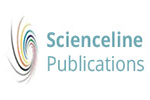(2020) TREATMENT TRIALS OF EPIZOOTIC LYMPHANGITIS WITH LOCAL MEDICINAL PLANTS: A REVIEW. Online Journal of Animal and Feed Research. pp. 158-166. ISSN 22287701 (ISSN)
|
Text
OJAFR 10(4) 158-166, 2020.pdf - Published Version Download (582kB) |
Abstract
The aim of this paper was to review the use of local herbal medicines to treat Epizootic lymphangitis (EZL) and challenges related with safety, efficacy and quality control of herbal medicines. EZL has deleterious effect on both welfare and health of the horses and mules. In addition it has a serious negative impact on mainly the livelihoods of cart-horse owners/drivers. Basically, antifungal drugs for the treatment of EZL are costly and mostly unavailable in such areas especially in developing countries like Ethiopia. Medicinal herbs have a hopeful future since there are about half a million plants around the world, most of them have not yet been studied in medical practice, and current and future studies on medical activities can be effective in treating this disease. Furthermore, there is no gainsaying the fact that the requirements as well as the research protocols, standards and methods needed for the evaluation of the safety and efficacy of herbal medicines are much more complex than those required for conventional pharmaceuticals. These days, there are several trials on local plants like Xanthium strumarium (X. strumarium), Combretum molle (C. molle) seed and Phytolacca dodecandra (P. dodecandra) extracts inhibited the growth of Histoplasma capsulatum var farciminosum (H. capsulatum var farciminosum). Among these, the aqueous and n-butanol extracts of P. dodecandra with minimum inhibitory concentration (MIC) of (0.078-0.156) and (0.039–0.078) respectively have been inhibiting the growth of H. capsulatum var. farciminosum. In vivo, over 58.3 horses with the disease responded to treatment then the other two plant extracts. In conclusion, P. dodecandra extracts showed a significant effect to inhibit the growth of H. capsulatum var farciminosum in vitro and EZL in vivo. © 2020, Online Journal of Animal and Feed Research. All Rights Reserved
| Item Type: | Article |
|---|---|
| Keywords: | Combretum molle Epizootic lymphangitis Medicinal herbs Phytolacca dodecandra Xanthium stramorium |
| Subjects: | S Agriculture > SF Animal culture |
| Divisions: | Online Journal of Animal and Feed Research (OJAFR) |
| Page Range: | pp. 158-166 |
| Journal or Publication Title: | Online Journal of Animal and Feed Research |
| Journal Index: | Scopus |
| Volume: | 10 |
| Number: | 4 |
| Publisher: | Scienceline Publication |
| Identification Number: | https://doi.org/10.51227/ojafr.2020.22 |
| ISSN: | 22287701 (ISSN) |
| Depositing User: | Dr. Saeid Chekani-Azar |
| URI: | http://eprints.science-line.com/id/eprint/59 |
Actions (login required)
 |
View Item |

